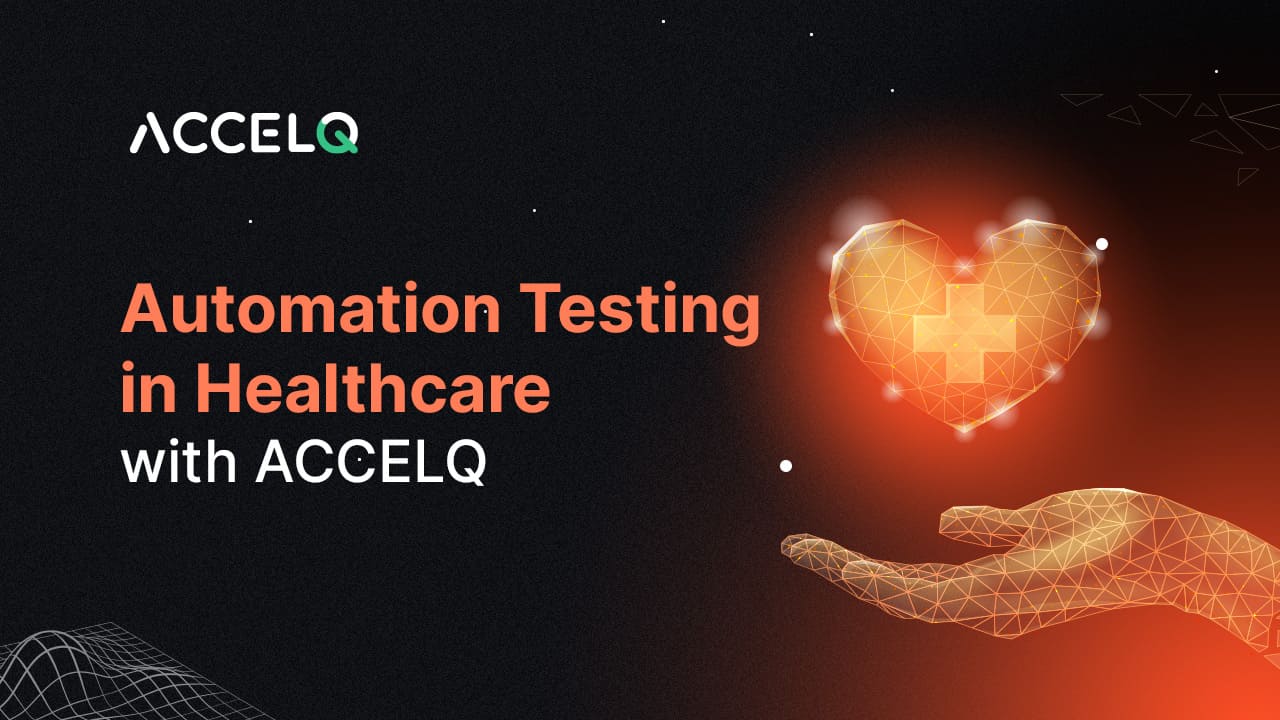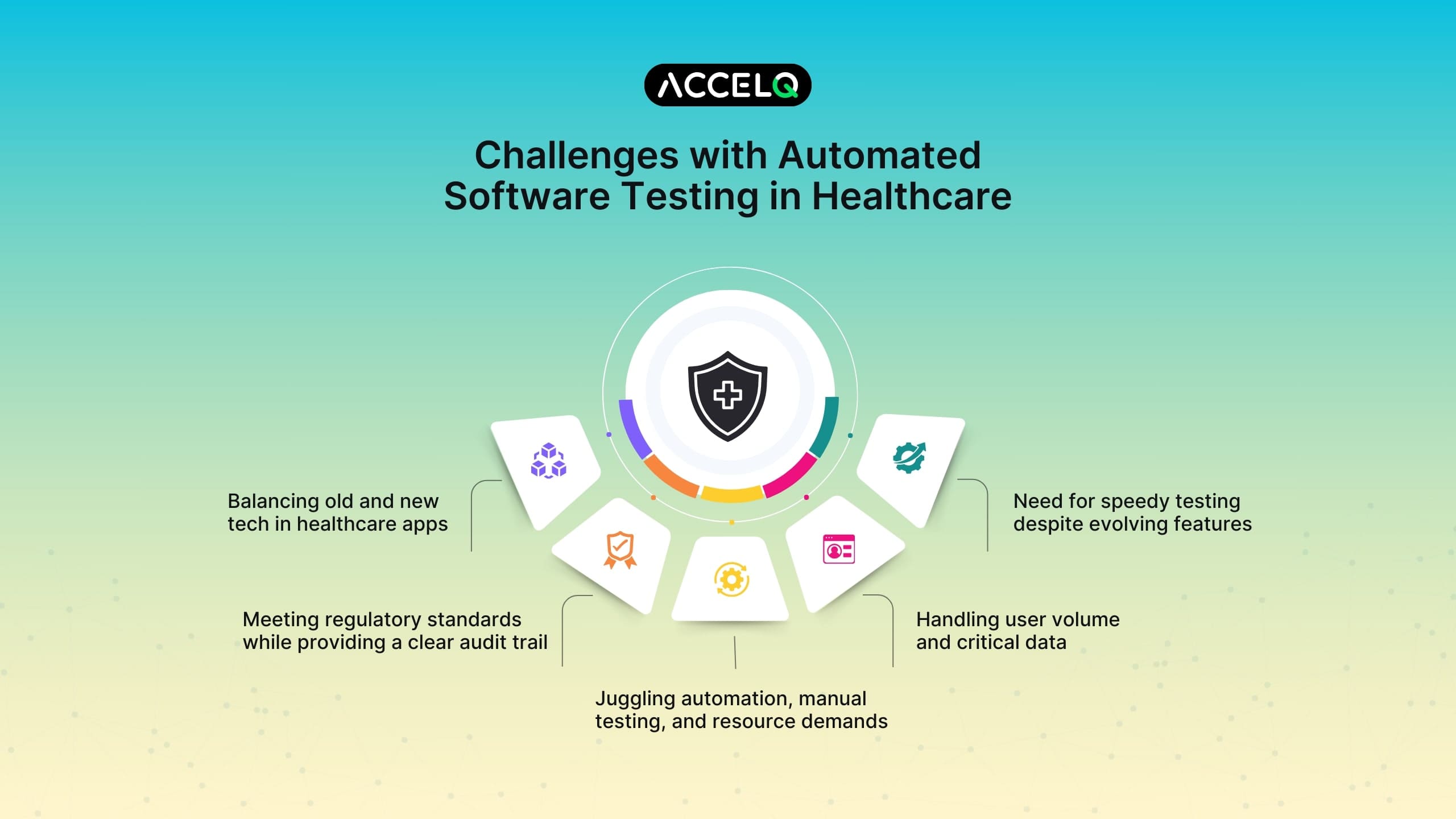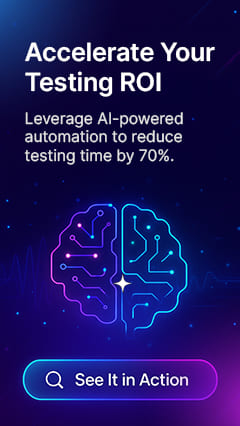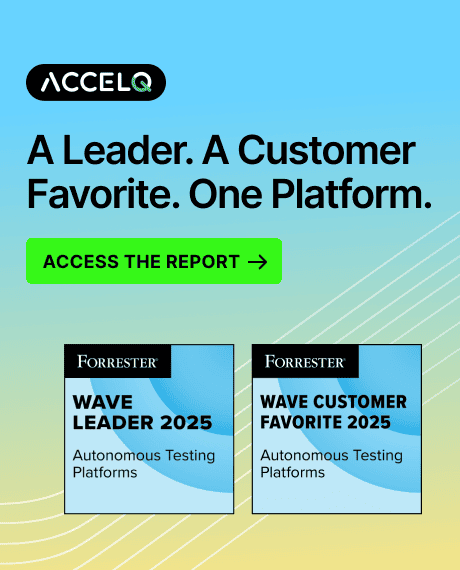Test Automation in Healthcare with ACCELQ

The healthcare industry is being driven by technological advances in cloud, interoperability, analytics, machine learning, AI, IoT, and the move toward digitization. Be it improving costs or healthcare outcomes, increasing the effectiveness of healthcare functions, elevating patient management capabilities, and improving patient health, healthcare applications are proliferating across the globe.
Given its impact, the global digital health market size is projected to grow to $1,965.30 billion by 2030. Such healthcare applications create massive opportunities for value creation and present immense opportunities to improve healthcare interactions and outcomes. However, since healthcare applications process many transactions and patient data, it is critical to ensure that these applications are performance-driven, secure, and thoroughly tested. As such, automated software testing in healthcare becomes important.
Benefits of Test automation in healthcare
The consumerization of healthcare applications has led to the need for automation testing of healthcare applications. Data shows that,
- The average software data breach on US medical businesses costs $8.64 million.
- Poor healthcare application/website performance can turn away almost 53% of users.
- The inability to ensure interoperability across the application and device ecosystem can cost billions of companies operating in this space.
Automation testing allows releasing secure, performance-driven, and compliant applications into the market.
In that light, let’s look at some of the Benefits of automation in healthcare is crucial:
Patient Safety
Research shows that almost 30% of the world’s data volume is generated from the healthcare industry. Healthcare applications use and create huge volumes of patient data, and the volume of this data will only increase.
Test automation helps,
- Optimize the performance, reliability, availability, and security of healthcare applications.
- Accelerate testing velocity.
- Building the appropriate guardrails to ensure data safety.
- Identify process inconsistencies.
- Improve operational segments.
- Identify and recognize doubtful activities that impact patient data safety and security.
Application Reliability and Performance
Application reliability and performance drive application adoption and advocacy. Automated testing of healthcare applications ensures that all performance aspects are working as intended and sudden loads do not impact the user experience.
Application performance and reliability are dependent on many factors and design considerations. All of these aspects must be tested to ensure they do not cause performance blockages. Manually testing the entire SDLC chain is time-consuming and almost impossible because of the manifold integrations and data connections.
Performance testing must also keep pace with today’s software releases volume, velocity, and variety. This also means that performance testing has to be scalable to test the entire application after each release or upgrade.
Test automation allows for mapping the entire application and all its components. It expands the testing footprint and ensures the application is secure and performance-driven.
Compliance with Regulations
With the constantly evolving healthcare technology landscape, the regulatory landscape is also evolving to accommodate these shifts. The industry also deals with sensitive patient and protected health information. As such, healthcare applications have to ensure that they comply with regulations such as HIPAA, FDA, and other healthcare security standards.
Manual regulatory compliance testing can become challenging. However, with automated software healthcare testing, developers and testing teams can test applications against these regulatory requirements, receive better regulatory assistance, and obtain a clear audit trail.
Faster Time-To-Market With Greater Quality Assurance
Market opportunities are increasing with the growing adoption of healthcare applications, tech trends like IoT, and the increased push towards digital transformation of the healthcare ecosystem.
So, introducing test automation early in the SDLC emerges as an invaluable enabler of time efficiencies. It allows development to shift testing left and ensures that all parts, components, and integrations are thoroughly tested. Automation accelerates development and allows organizations to quickly deliver thoroughly tested, reliable, and performance-driven applications.
Challenges with Automated Software Testing in Healthcare
The case for Test automation in healthcare has already been made. However, some factors impede automated healthcare software testing initiatives. These areas are also important points of consideration for delivering fast, flawless, and frictionless application experiences.
Legacy and Modern Technologies
Healthcare apps use both modern and legacy tech. Many legacy applications feature monolithic architectures and contain confidential patient data. Therefore, it’s crucial to consider legacy technology dependencies when testing these applications.
Today this ecosystem consists of mainframes to packaged applications, custom applications, microservices, APIs, and cloud-native applications. All these components are evolving differently and simultaneously, and ensuring that these applications meet user expectations is challenging.
Test automation in healthcare platforms has to, as such, do a lot more heavy lifting and allow testers to expand their testing footprint easily. The healthcare automation platform has to accommodate Agile and DevOps toolchains seamlessly to increase testing speed while accommodating the needs of this unique test environment.
Regulatory Compliance and Audit Trails
The highly regulated nature of the healthcare industry demands that testing be comprehensive and fast. It must ensure the applications meet the regulatory standards while providing a clear audit trail.
Therefore, automated healthcare testing platforms must comply with healthcare security standards and embed compliance into their framework. Additionally, they need features to handle sensitive data securely, test all data sets to recognize doubtful activities and ensure precise authentication of audit trails.
Resource Constraints
Testing healthcare applications thoroughly while accounting for all the dependencies is resource-intensive. While test automation in healthcare becomes essential to drive testing speed, it can also place demands on resources. The resources need to,
- Write the test automation codes
- Manage the test environments
- Launch new test environments for application testing
- Ensure test management and execution
Some application parts may also need manual testing, and the testing platform must be comprehensive enough to support this.
Scalability of the Testing Framework
Healthcare applications handle a large number of users and process critical patient data. To support this, the automation testing platform must be scalable to meet the growing needs. The platform has to help testers keep pace with the volume, variety, and velocity of application releases. It must also ensure that it fits into today’s enterprise testing environment and can be used by both testing experts and non-experts.
Fast Regression Cycles
Testing teams need fast automation cycles while considering the unique testing needs of healthcare applications. Moreover, when new features, functionalities, updates, or upgrades are added, testing teams must ensure that their testing platform can support continuous testing and enable fast regression cycles.
Moreover, the test automation platforms need to seamlessly integrate with various platforms, electronic health record (EHR) systems, medical devices, and APIs to enable comprehensive end-to-end testing.
How ACCELQ Solves the Test Automation Challenges
ACCELQ is a Codeless AI Automation and Quality Assurance platform. It addresses the specific needs of healthcare applications and the healthcare ecosystem. Aligned with the industry needs, this platform provides:
- Security in managing healthcare data and compliance with healthcare security standards.
- Scalability to support future growth.
- Seamless integration with the entire healthcare ecosystem, including legacy greenscreens, desktop thick clients, modern web to microservices API, and Mobile Apps for end-to-end test automation.
- Compliance testing against regulatory requirements.
- Flexibility to adapt to changing requirements and test scenarios.
- Capacity to easily modify and update test cases.
- No code and in-built modulatory that improves resource utilization and accelerates testing speed
- CI-ready, scalable, and secure with in-sprint automation with industry-first virtualized abstraction for functional testing.
- Seamless integration in the tool ecosystem like Jira, Azure DevOps, TFS, Jenkins, Bamboo, etc.
Modern healthcare applications need to be secure, efficient, and capable of handling large quantities of data while ensuring usability and regulatory compliance. Therefore, upgrading testing practices becomes inevitable to cover all industry standards, meet all healthcare regulations, and release performance-focused, high-quality applications that see adoption and advocacy.
Connect with us to see how automation testing with the AI-powered, no-code ACCELQ platform transforms your testing practices by increasing testing velocity and footprint.
Yuvarani Elankumaran
Technical Consultant at ACCELQ
Yuvarani Elankumaran is a highly skilled technical consultant at ACCELQ. With over a decade of experience in the field of Test Automation, Yuvarani is a seasoned professional who is well-versed in a variety of programming languages and automation frameworks.
You Might Also Like:
 How to Create a Data-Driven Test Strategy?
How to Create a Data-Driven Test Strategy?
How to Create a Data-Driven Test Strategy?
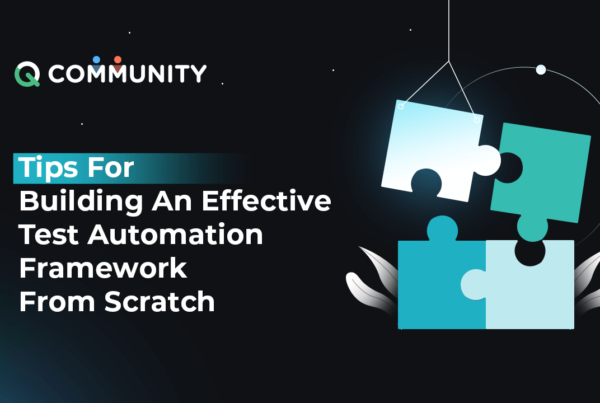 How to Ease QA Teams Into Automation?
How to Ease QA Teams Into Automation?
How to Ease QA Teams Into Automation?
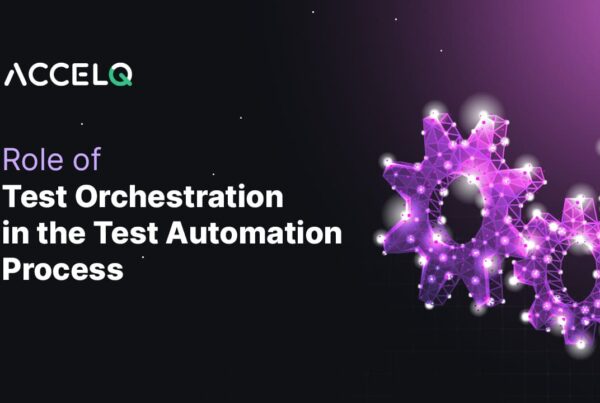 Test Orchestration: Why It Matters?
Test Orchestration: Why It Matters?






























